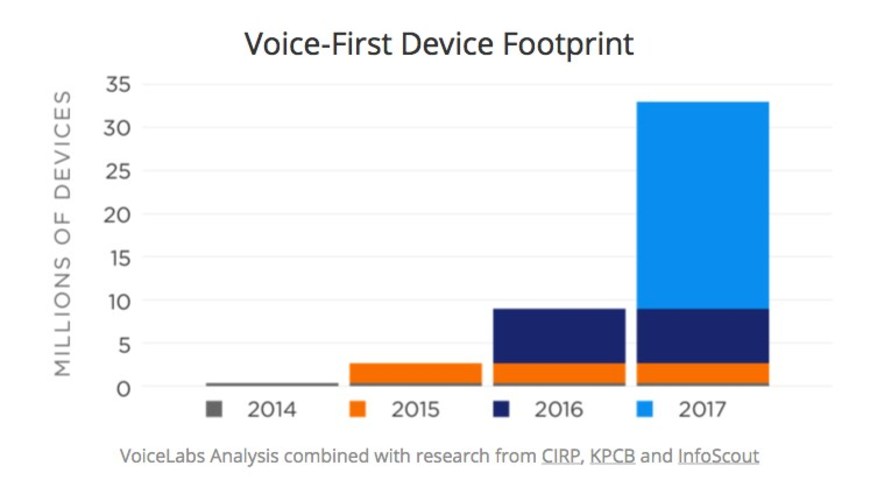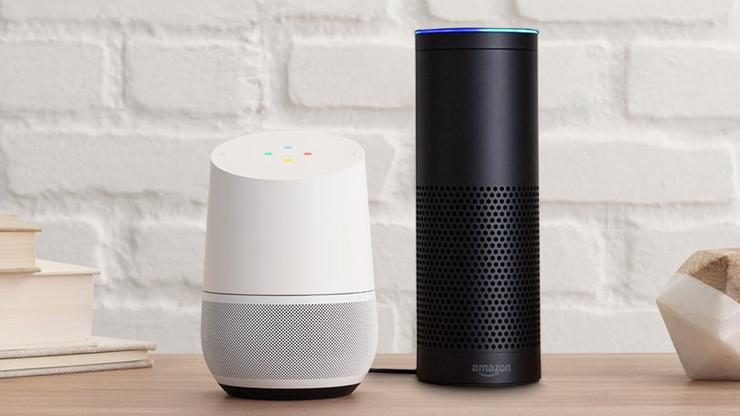Recent information from within Amazon revealed that over 100 million Alexa-enabled devices (Amazon Echo, Echo Dot, etc.) have been sold since the product line launched more than four years ago, on November 6, 2014.
Although the Echo Dot followed a year and a half later, with an initial launch in March 2016, the more diminutive smart speaker from Amazon soon rose through the sales charts as one of the Amazon’s best-selling products of all time – for three years in a row, no less.
Its close competitor, the Google Home Mini, has been equally successful in terms of sales figures. Neither company reveals its sales numbers for obvious reasons (the competition would kill for this information), but third-party estimates and the company’s own statements from time to time show how big the market is and how dominant these two products really are.
First, let’s look at their larger counterparts and compare various aspects of the two: Amazon Echo and Google Home.
Amazon Echo vs. Google Home
These products are pioneers in their class of consumer goods because they set the tone for several other companies like Apple and Microsoft to come up with their own smart speaker products.
Amazon Echo was the front-runner until the first generation Google Home was announced in May 2016, nearly two years after its chief competitor. This gave the Echo a significant lead, during which it racked up sales in the double-digit millions, or at least close to it by conservative estimates.
At the end of 2016, Morgan Stanley said that 11 million Echo devices were sold between mid-2015 and the end of 2016. At the time, the investment bank said that this estimate was “likely very low.”
Google Home was officially made available in October 2016, shortly after the October 4 event that unveiled the very first Google Pixel duo of smartphones.
Google Home quickly scaled up the sales charts while the Google Pixel was experiencing severe shortages during the 2016 holiday season.
According to research firm Canalys, Google Home outsold Amazon Echo for the first time since it was launched. In the first quarter of 2018, Google Home sold an estimated 3.2 million units against Amazon Echo’s 2.5 million units.

The real impact for Amazon, however, comes from the Echo Dot rather than any of the other products. Reports show that the Echo Dot was consistently the top-selling product of all time on Amazon.com for three years: 2016, 2017 and 2018.
Amazon Echo Dot vs. Google Home Mini
The Echo Dot was launched almost two years after its bigger cousin, the Amazon Echo. Google was faster out the gate because both these products had already set a precedent and had created a market for smart home speakers. Google Home Mini was announced and launched in October 2017, a year after its bigger sibling came out.
In Q2 2018, Google Home Mini became the best-selling smart home speaker for the quarter, selling an estimated 2.3 million units during the period. The Echo Dot remains Amazon’s best-selling smart speaker, selling “millions more” during the 2018 holiday season compared to the prior holiday season in 2017.
==========Original Article Below============
24 Million Amazon Echo and Google Home Devices Will be Sold in 2017: Voice Report
According to the 2017 Voice Report from VoiceLabs, Amazon Echo and Google Home smart speakers will sell more than 24 million units combined through the end of 2017.
The report, which combines data from multiple sources, including CIRP, KPCB and InfoScout, shows that a total of 24.5 million devices will be sold by Google and Amazon in 2017.

Source: Voice Report via PR Newswire
The report also shows that the total footprint of voice-first devices will hit 33 million units by the end of the year after expanding by 24.5 million units, which means there are only a total of 8.5 million units of Amazon Echo and Google Home combined.
That’s a little hard to believe, and it conflicts with information from Morgan Stanley, which showed that there were more than 11 million Amazon Echo devices sold between mid-2015 and December 1, 2016.
SEE: Amazon Echo Sold 11 Million Devices by Dec 1, 2016: Morgan Stanley
Both reports can’t be true, obviously, but we have to remember that both of them are estimates rather than actuals. There’s no way to get the actual numbers because only Amazon knows what those are – and they’re being very tight-lipped about it, other than the fact that Amazon Echo devices sold 9 times more during Cyber Week 2016 than the year before.
We know that Amazon sold at least 1 million Amazon Echo devices during the 2015 holiday season, possibly more. 9 times that means the company sold at least 9 million units at the end of 2016. That information comes directly from Amazon, so it has to be accurate.
As it stands, we believe that Morgan Stanley’s numbers are closer to being correct. What’s more, the investment bank even said that the estimate of 11 million is “likely very low.”
If that’s the case, then there are already between 11 million and 15 million Amazon Echo and its variants out there. But the VoiceLabs estimate is about 9 million in total – Amazon Echo and Google Home combined. That’s why we believe the number is way off.
However, what’s interesting is that the voice-first market is estimated to grow nearly four times over the course of 2017. According to their sources, that works out to 33 million devices by the end of this year.
Now, if we use the data from Morgan Stanley and the growth estimate from VoiceLabs’ sources, something interesting emerges: total voice-first device units will grow to at least 45 to 50 million devices by the end of 2017.
Amazon Echo will continue to dominate that market, at least through 2017, and Google Home and other smart speaker makers who have released or are releasing similar products this year will each get a share of market.
For Amazon, that’s great news because theirs is the only device that will offer direct voice shopping from Amazon’s extensive catalog of items.
Assuming that the figures are anywhere near accurate, we could see a further spurt in Amazon’s retail revenues in North America. The unit is already hitting close to $20 billion in revenues – $18.87 billion reported in the last quarter, to be exact. That figure should be well over $20 billion for the holiday quarter, which is being reported on February 2, 2017.
If they see a further spurt in growth based on voice shopping sales through Amazon Echo devices, 2017 could be the year that Amazon’s North America retail division alone hits the $100 billion a year mark.
As for Google Home, even strong sales in 2017 won’t make a big impact on their revenues, but it will give them a solid presence in the voice-based consumer electronics market.
And who knows, Google may well introduce voice advertising in future to monetize their voice search channel, with users coming in from Google Assistant on Google Home, Google Pixel smartphones and future devices.
Thanks for reading our work! Please bookmark 1redDrop.com to keep tabs on the hottest, most happening tech and business news from around the world. On Apple News, please favorite the 1redDrop channel to get us in your news feed.



